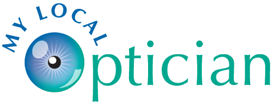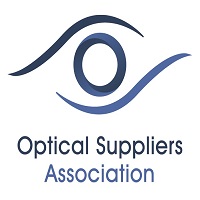Vision News
Hairy Bikers Dave Myers calls for urgent action on sight loss
Hairy Bikers Dave Myers calls for urgent action on sight loss
Action urgently needed to address eye health emergency and prevent hundreds of people from needlessly losing their sight every year
- More than two million people in the UK are living with sight loss which costs the UK economy £36 billion per year
- 50% of all sight loss is avoidable, but without a National Eye Health Strategy people are not getting the treatment they need in time
- Hairy Bikers Dave Myers, MP Marsha De Cordova and Specsavers are calling for policy change to implement a National Eye Health Strategy in England
We are currently facing a national eye health emergency. More than two million people are living with sight loss[i] and every year 250 people lose their sight because of treatable conditions such as glaucoma[ii], which is the leading cause of irreversible blindness. Sight loss also costs the UK economy £36 billion per year[iii].
A recent Specsavers report found that more than 1 million A&E attendances last year were for eye-related conditions. Over half of these could have been treated by community opticians. Additionally, people with eye-related conditions account for five million GP consultations every year, which also could have been dealt with by community optometrists using infrastructure that already exists.[iv]
A National Eye Health Strategy is therefore urgently needed to improve and standardise eye care access for everyone in England. As part of the strategy, community optometrists would play a primary role in detecting, treating and managing both minor and urgent eye conditions; reducing reliance on GPs, A&E departments and easing the pressure on the NHS.

Hairy Bikers Dave Myers, who had early signs of glaucoma spotted during an appointment at a high street optician, is supporting the call for a National Eye Health Strategy.
Dave comments: ‘If the early stages of my glaucoma hadn’t been detected during an eye test, it would have progressed and I could have gone blind. This would have been the end of the Hairy Bikers and massively impacted my quality of life. Not being able to see my children’s faces again would have been heartbreaking. Everybody should have access to eye care locally regardless of where they live, not only to prevent avoidable sight loss but also to detect other life-threatening conditions. Early detection and treatment are essential so everyone should use their local opticians as a first port of call – they are accessible and affordable.’
‘I back Specsavers call for all parties to support the creation and implementation of a National Eye Health strategy in the next Parliament. We all need to work together to support the NHS and improve patient outcomes.’
Over two million people are currently at risk of vision loss due to glaucoma[v], often referred to as the silent thief of sight because it is usually symptomless during the first few years, so many people may not realise they have the condition until it is too late as lost vision cannot be restored[vi]. As many as half of all people with glaucoma are undiagnosed[vii], but when detected early via eye tests, glaucoma is far more treatable.
Dave adds: ‘I take daily eye drops to manage my glaucoma and have yearly eye tests at Specsavers. I can proudly say that when wearing my glasses, I have 20:20 vision – so the Hairy Bikers aren’t going anywhere any time soon.’
Ludwig Rasmey, who was diagnosed with glaucoma following a routine eye-test appointment said: ‘I went to get my eyes checked at my GP 8 years ago because I had felt a throbbing in my left eye for months – it was unbearable. However, nothing was picked up at this stage. It wasn’t until I had a routine eye test with Specsavers that the optometrist identified extremely high pressure in my left eye. Typical eye health pressure is between 6 and 8, whereas mine was over 30. I went to A&E after the optometrist warned that due to the high pressure, my optic nerve could have given in at any moment. I soon after received a diagnosis of glaucoma and was given eyedrops to take daily to keep the pressure down in my eye. Though I have lost some peripheral vision, if it wasn’t for my routine check-up, my sight could be nearly completely gone and I wouldn’t have the quality of life that I have today. My story highlights just how important community opticians are in supporting the NHS and the nation’s eye health.’
Marsha de Cordova, Labour MP for Battersea, and Chair of the All Party Parliamentary Group on Eye Health and Vision Impairment has been leading the campaign in Parliament to have a strategy introduced. Marsha said: ‘Health strategies have delivered positive outcomes in Scotland, as they have in England for other diseases, but at present England is the only country in the UK without an eye health strategy. It is extremely worrying that the government is refusing to introduce a Strategy and its inaction is undermining efforts to deliver better eye care in England. That’s why I introduced a Private Members Bill calling for A National Eye Health Strategy which would improve the quality of life of people with sight loss, eliminate the postcode lottery, address health inequalities, and link up patient pathways for overall improved health outcomes. As someone who has been living with Nystagmus since I was born – a condition which causes a repetitive and involuntary movement of the eyes – eye health is a topic close to my heart and I believe we should make it our national ambition to ensure that no one loses their sight unnecessarily.’
The effects of the pandemic are still felt throughout the NHS with ophthalmology being the largest and busiest outpatient service. The eye care backlog accounts for over 650,000 patients, approximately 10% of all those on NHS waiting lists[viii]. Eye care needs also contribute to many other NHS lists as poor eye health and sight loss can reduce a person’s independence and increase the likelihood of loneliness, depression, frailty falls and dementia.
Current access to eyecare in England isn’t working, with some groups being particularly disadvantaged. People experiencing homelessness find it difficult to access an NHS eye test. Access is also more challenging for older people, disabled people or people with a learning disability. A national eye health strategy would not only address geographical eye health inequalities but also ensure more equity of access to eye care among communities and populations more at risk of being unable to access NHS sight tests.
‘17.5 million adults in the UK haven’t had an eye test in the past two years as recommended[ix]. We support a National Eye Health Strategy because we believe everyone should have equal access to eye care. Fifty per cent of all sight loss is avoidable[x] but sadly every week 5 people their sight due to causes that could be preventableii. Specsavers is all about changing lives through better sight – by the eye health sector working together, we can better support our patients and the NHS.’ says Giles Edmonds, Clinical Services Director at Specsavers.
A National Eye Health Strategy would:
- Enable quicker access to NHS eye care via high street opticians rather than waiting to see a GP
- Provide access to free NHS eye tests for people experiencing homelessness
- Speed up access to NHS eye tests for older and disabled people living in residential care settings
- Promote NHS telemedicine and remote consultations for those living in remote locations
- Free up the NHS as many patients can be seen by NHS primary care optometrists
To learn more about Specsavers Access to Care Report visit www.specsavers.co.uk/reports/access-to-care-2023
[i] NHS Blindness and Vision Loss [Last accessed November 2023]
[ii] https://www.hsib.org.uk/news-and-events/latest-hsib-report-highlights-devastating-impact-of-delays-and-pressure-on-national-glaucoma-services/
[iii] Deloitte Access Economics. (2021). The economic impact of coronavirus (COVID-19) on sight loss and blindness in the UK.
[iv] Specsavers. (2023) Access to care report. https://www.specsavers.co.uk/reports/access-to-care-2023
[v] Specsavers. (2022). The State of the UK’s Eye Health report. https://www.specsavers.co.uk/reports/state-of-the-uks-eye-health-2022
[vi] https://www.nhs.uk/conditions/glaucoma/
[vii] Soh Z et al. The Global Extent of Undetected Glaucoma in Adults: A Systematic Review and Meta-analysis. Ophthalmology. 2021 Oct;128(10):1393-1404. doi: 10.1016/j.ophtha.2021.04.009. Epub 2021 Apr 16. PMID: 33865875.
[viii] Hospital Outpatient Activity 2021-22. NHS Digital. and https://www.england.nhs.uk/2023/05/new-nhs-measures-to-improve-eye-care-and-cut-waiting-times/
[ix] The Eye Q report, commissioned by Eye Health UK and Thomas Pocklington Trust and conducted by Yonder Consulting amongst 2,077 UK Adults aged 18+ between 24 – 25 August 2022.
[x] https://www.aop.org.uk/ot/science-and-vision/research/2018/03/28/uk-has-lowest-prevalence-of-blindness-in-the-world



















